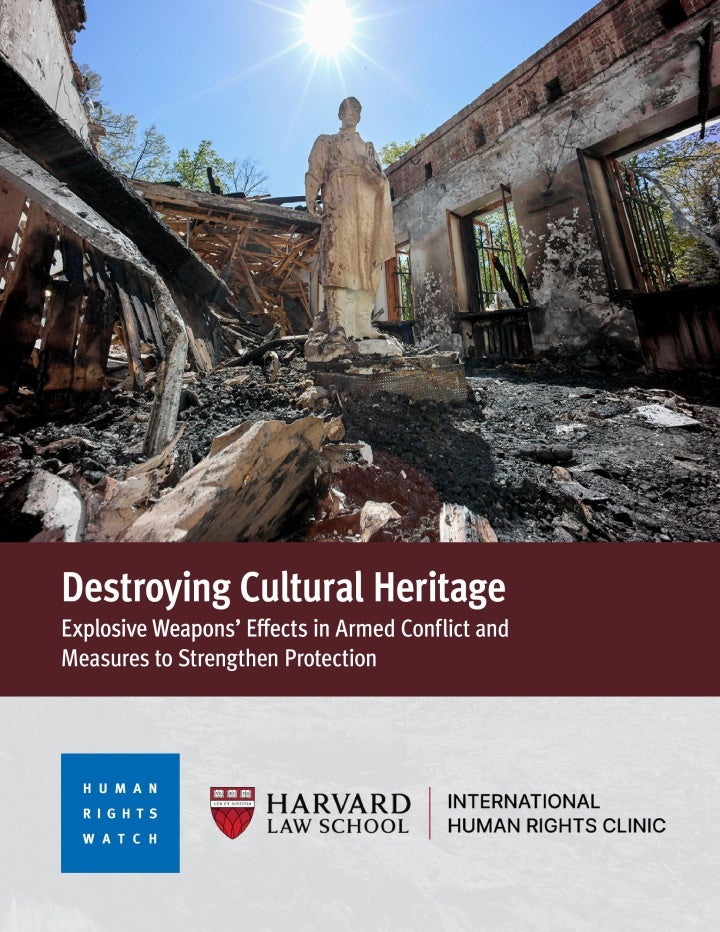Destroying Cultural Heritage
Explosive Weapons’ Effects in Armed Conflict and Measures to Strengthen Protection
The 80-page report, “Destroying Cultural Heritage: Explosive Weapons’ Effects in Armed Conflict and Measures to Improve Protection,” details both the immediate and long-term harm from the use of explosive weapons in populated areas on cultural heritage, such as historic buildings and houses of worship, museums and archives, public squares, and performance centers. It shows that the Declaration on explosive weapons could serve as a valuable tool for addressing the problem.

